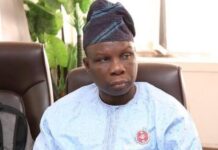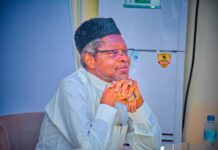Evincing the Underlap
With a majority of the speakers battling with kidnapping, banditry and terrorism, this probably is not the time to discuss other issues that on the surface may be seen as minor, but we are in a period of challenges, faced with a multifaceted existential crisis; we are losing our lives, we are losing our property, and we are losing our culture. These problems combined are enough to make us lose the ultimate – our collective purpose, weaved over thousands of years in our rich cultural heritage, clothing, food, language and plan for progress. And like generations before us, nature has saddled us with the responsibility of passing the baton – unadulterated – to the generation that will succeed us.
The death of a language occurs when there are no native speakers or if there are only a few elderly speakers of the language but just don’t use it enough, and the Hausa – spoken by an estimated 80 million native speakers and 20 million who speak it as a second language, is the fourth most spoken language in Africa behind only Swahili, Arabic and French yet a look through a lens tells you its better days are far behind it.
The descend started a long time ago when foreign invaders dismantled a completely balanced and functional system built around the language, its people and introduced another, wholly reliant on a foreign language, theories, systems and standards to work. It could take a kiloyear for the doom to completely descend on us but we are on a collision course with it, moving as slow and unnoticed as the whispers of the wind to a bear in hibernation, but it is coming and the work to stop it needs to start now.
A language is a way by which people communicate with one another, the type of communication though is what makes a language relevant or otherwise. In the precolonial era, after the defeat of the Hausaland in the Holy War and the subsequent establishment of the Fulani Emirates, Hausa language was maintained as the official language and it played an integral role in state-building, the spread of Islam, learning, Sub-Saharan trade and in the peace and unity of the region. Over hundreds of years, its dominance and wide usage rendered smaller languages irrelevant, thereby subsumed the people, their languages and altered their way of life.
Naturally, languages that are not the primary in schools, administrative setting or in trade are reduced to a peripheral role, to be subsumed by a larger language. This is the negative side of bilingualism and multilingualism, it pits languages against each other, and as we most often see in sports or even in relationships, the most dominant always wins and more often than not – at the detriment of weaker parties. I am not in any way an ethnonationalist, I just believe altering the intergenerational transmission of smaller languages through deliberate external interference is wrong.
Linguists have estimated that upwards of 20,000 languages may have been in existence at around 8,000 BC, fast forward 10,000 years and the number stands at an alarming 6,909, as if that is not enough, UNESCO projects that over half of all languages in the world will die or disappear by the end of the 21st century. The major international languages will grow exponentially with most of the new speakers coming from Africa and Asia. So how do some languages survive and others die, and why? The story of Bole in Northeastern Nigeria and Scottish Gaelic could provide us with a much-needed clue.
As a Bole from the Northeast, I was born into a region where the Lingua Franca was Kanuri and now Hausa. The language has survived being part of the Kanem-Bornu Empire and Arewa, but may not survive in Nigeria, even before the goal of the colonial masters is achieved.
Bole is currently endangered; spoken mostly by elders when and only if they are speaking to each other; and by parents who wish to tell their children things they don’t want the visitors to hear and that is not even a usual occurrence in most homes; and then widely by the inhabitants of Fika Local Government, Yobe State who are now gradually resorting to Hausa.
With “Proudly Bolewas” that don’t speak it spread across Yobe, Gombe, Bauchi and parts of Niger states, your guess would be that it is because it’s not relevant there, and you are absolutely right. My language has been reduced to one for gulma and for occasions, and by my prediction, every effort to keep it alive will be futile because the chance to make it relevant in present-day is long gone. We can only nurse it to a painless death.
What happened to Bole is cognate with what is happening to Hausa, the only difference is that while Bole’s was natural, Hausa’s is through a deliberate ploy and interference by foreign powers. When the English are out to destroy the language and culture of a people, they are ruthless and aggressive and my God, these people are patient too. And this will sadly guide us to the story of Gaelic.
Gaelic is one of the oldest languages in Europe yet it has less than a decade to live according to studies. Just like Bole Language, it is not spoken in the home, and teenagers do not use it. 12.5 million pounds a year has been spent to keep it alive but the work done by the British in Scotland is unlike ours that is true subtle means – it was fierce and aggressive. It was outlawed in the 17th century and as recently as the 20th Century, children were beaten for speaking Gaelic at school; the same punishment we met out to those speaking vernacular in our schools. They are still exploring ways to halt the rot and deviate from English even though they have practically been English for centuries.
Back to Africa, Recent studies have shown a decline in the use of indigenous African languages among the middle and upper classes. The statistics are worrisome, positing that the next generation of business leaders, academics and politicians in anglophone countries will speak English as a first, and probably only language.
Our poor education system has shielded most of the lower class, but that is not a good plan, it is not even a plan at all as poor education is only making our matters worse. Some states, including Kano and Yobe have introduced teaching in native languages in Primary schools. Whether it is because the governments have realised the slippery slope we are on and are moving to halt the slide or it is merely coincidental is immaterial, it is still not enough. We need a collective education system – this must be at the table of the next Northern Governors Forum meeting – that plays to the strengths of the people and that includes the language they understand the most too. Not able to talk anything of relevance with Hausa but English is the seed that was planted in our great grandparents, germinated in our grandfathers, it is growing in us and may bear its poisonous fruit in our children if we don’t act.
An educational system centred around native languages can still work across the country even though we have an estimated 515 languages. Smaller languages can be sacrificed as they are on course to be subsumed by the three major languages anyway. Teaching native tongues as subjects in school just won’t do while the rest are being taught in English. Will a system with three official languages work? Well, there is India with 22 official languages and English as the official foreign language yet the country functions more than ours does. Globalization and international trade haven’t affected India, it has kept its languages, food and clothing – all embodiment of its culture alive.
India’s system is economically, culturally and academically more beneficial to the people. Sometimes I wonder if I could say what’s in a language, a good conversation would be just as nice in any language and allow the slide to continue but I am not Shakespeare, I am not meant to write fiction. And the nonfiction is, every child we celebrate on Social Media for speaking fluent English while he can’t speak his native tongue is us celebrating the squeak of our languages as they kick, and twist and turn on their deathbeds, yearning for pain relievers when we could have called in the doctor.
One day we could wake up as shells of our natural selves – it won’t be us, it will be the native speakers in the future but still, we would be equally responsible for it… We must not stray away from the language of our ancestors.
P.S If you need an extra reason to be convinced, I should have written this article in Hausa but here I am speaking English.
Facebook: Gimba
Twitter and Instagram: @hiswordisgold
Follow the Neptune Prime channel on WhatsApp:
Do you have breaking news, interview request, opinion, suggestion, or want your event covered? Email us at neptuneprime2233@gmail.com





